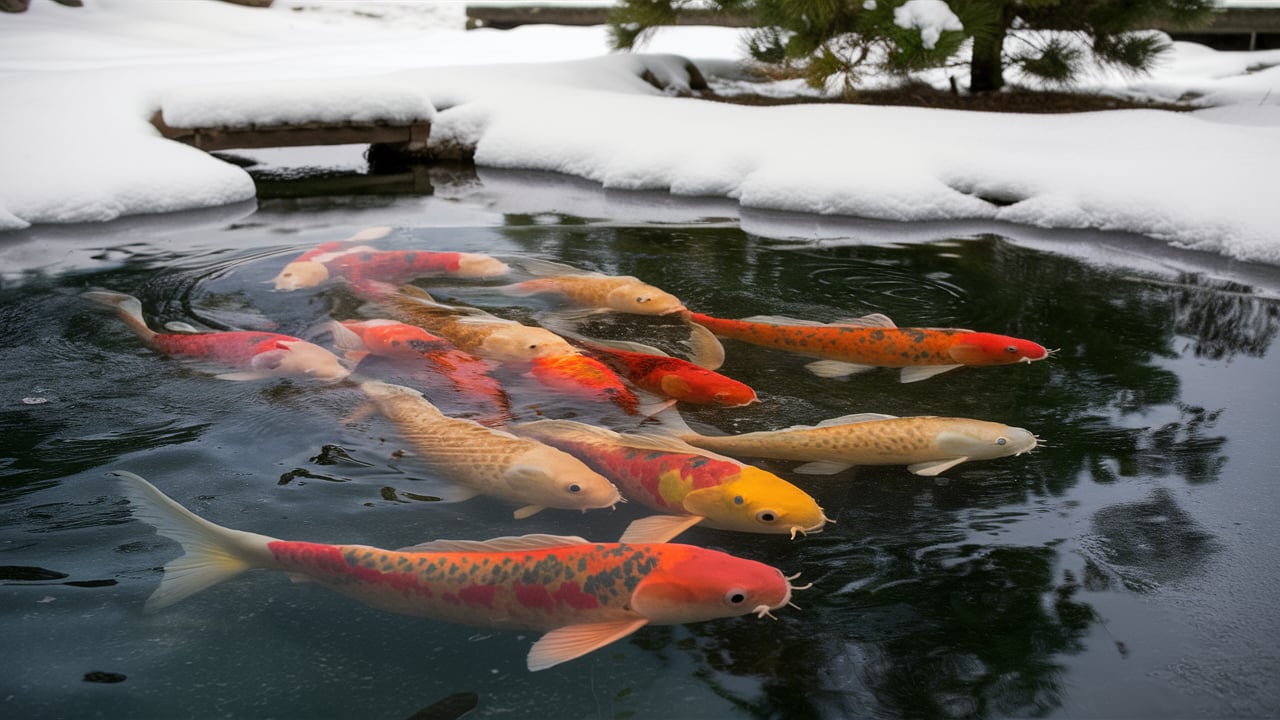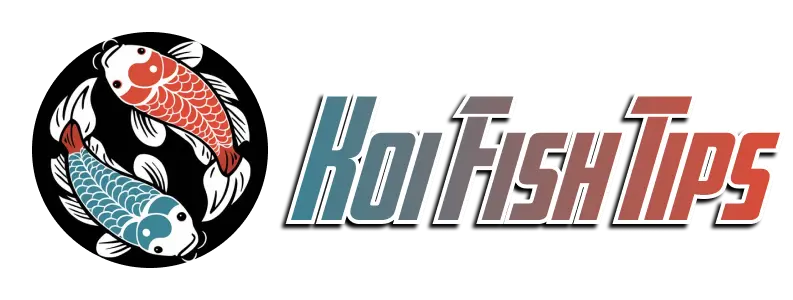As the seasons change and temperatures drop, many koi enthusiasts wonder: Do koi fish hibernate? This question, often posed by those embarking on their koi-keeping journey, delves into the fascinating world of koi behavior and their adaptations to changing environments. This exploration, brought to you by Koi Fish Tips, will unravel the mysteries surrounding koi hibernation.
Unraveling the Mystery: Do Koi Fish Hibernate?
The simple answer is no, koi fish do not hibernate in the true sense of the word. Hibernation is a state of deep sleep characterized by a significant decrease in metabolic rate, heart rate, and body temperature. While koi fish do exhibit changes in behavior during winter, they don’t enter a true hibernation state.
Understanding Koi Fish Behavior in Winter: A Closer Look
Koi fish, like many cold-blooded creatures, are sensitive to temperature fluctuations. As water temperatures drop, their metabolism slows down, and they become less active. This is a natural adaptation to conserve energy during the colder months.
Reduced Activity
During winter, koi fish spend less time swimming and feeding. They often congregate at the bottom of the pond, seeking warmer water temperatures near the sediment.
Decreased Appetite
As water temperatures decrease, koi fish’s metabolism slows down, leading to a reduced appetite. They require less food during winter as their energy needs are lower.
Increased Tolerance to Cold
Koi fish have a remarkable ability to tolerate cold temperatures. Their bodies produce a natural antifreeze that helps prevent ice crystals from forming in their blood, protecting them from freezing.

Essential Considerations for Koi Care During Winter
While koi fish don’t hibernate, they still require special care during the colder months to ensure their well-being.
Maintaining Water Temperature
While koi fish can tolerate cold temperatures, it’s important to maintain a minimum water temperature of around 40°F (4°C) to prevent them from becoming stressed or experiencing health issues.
Reducing Feeding
As koi fish’s appetite decreases in winter, it’s essential to reduce their food intake. Overfeeding can lead to water quality issues and health problems.
Water Quality Management
Maintaining good water quality is crucial throughout the year, but especially during winter. Koi fish are more susceptible to disease when their immune systems are weakened by cold temperatures.
Providing Shelter
While koi fish can tolerate cold temperatures, providing them with shelter can help them stay warm and comfortable. This can be achieved by adding a layer of insulation to the pond or providing a heated area.
What are some ways to provide shelter for koi fish in winter?
Pond Insulation
- Floating Insulation: This involves using materials like styrofoam sheets or specialized pond insulation mats that float on the surface of the pond. These materials help trap heat and prevent the water from freezing too quickly.
- Bottom Insulation: You can use insulation panels or mats specifically designed for pond bottoms. These panels are placed at the bottom of the pond, creating a layer of insulation that helps maintain warmer water temperatures near the bottom where koi tend to congregate during winter.
Heated Areas
- Heated Pond De-Icers: These devices are designed to melt ice and create a small area of open water, providing a safe haven for koi to access oxygen and warmer water.
- Submersible Pond Heaters: These heaters are placed in the pond and use electricity to maintain a specific water temperature. They are effective for larger ponds and can be adjusted to suit your needs.
Natural Shelters
- Aquatic Plants: Planting aquatic plants like water lilies, lotus, or water hyacinths can provide natural shade and cover for koi during winter. These plants help create a more stable microclimate within the pond.
- Rocks and Logs: Adding rocks and logs to your pond can create natural hiding spots for koi, offering them a sense of security and protection from the elements.
Winter Covers
- Netting Covers: Using netting covers over the pond surface can help reduce heat loss and prevent debris from entering the water.
- Insulated Covers: Specialized insulated covers can be used to further reduce heat loss and create a more stable microclimate within the pond.
Consider the Pond’s Location
- Sunlight Exposure: Positioning your pond in a sunny location can help it absorb more heat during the day, keeping the water warmer for longer.
- Wind Protection: Planting trees or shrubs around your pond can help create a windbreak, reducing heat loss and making the pond more sheltered.
Frequently Asked Questions about Koi Fish in Winter
What is the ideal water temperature for koi fish in winter?
The ideal water temperature for koi fish in winter is around 40°F (4°C). This temperature range allows them to stay active and healthy while conserving energy.
How often should I feed my koi fish in winter?
During winter, koi fish’s appetite decreases significantly. You should reduce their food intake by about 50% and feed them only once a day.
What are the signs of a healthy koi fish in winter?
A healthy koi fish in winter will be active, have a healthy appetite, and exhibit normal coloration. If you notice any unusual behavior or changes in appearance, consult a veterinarian.
What are some common winter health problems that koi fish can experience?
Some common winter health problems that koi fish can experience include cold shock, frostbite, and bacterial infections. It’s important to monitor your koi fish closely during winter and seek veterinary care if you notice any signs of illness.
Conclusion
While koi fish do not hibernate in the true sense of the word, they do exhibit changes in behavior and require special care during winter. Understanding their winter adaptations and providing appropriate care can ensure their health and well-being throughout the colder months.

Bài viết liên quan
Baby Koi Fish – A Journey Of Growth And Beauty
Imagine a tiny, shimmering speck of color darting through the water, a miniature version of [...]
Jul
Best Food For Koi Fish: What To Feed And What To Avoid
Koi fish, with their vibrant colors and elegant movements, are a captivating addition to any [...]
Jul
Do Koi Fish Eat Bread? The Truth About Feeding Your Fish
Do koi fish eat bread? Is it a suitable food for koi? This comprehensive guide, [...]
Jul